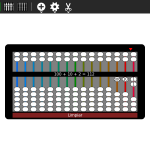Are you programming on XO hardware today? Working on Sugar core or
activities? Porting Fedora or other distros to ARM?
As I write this, XO-1.75 B1 prototypes are being assembled 20 meters
away from me. These are engineering samples — some will go to drop
tests and mechanical and electrical torture tests. Luckier units will
go to the hands of passionate developers interested in helping us with XO-1.75.
To request one, please follow the instructions on the wiki:
http://wiki.laptop.org/go/Contributors_program#FAQ
We cannot guarantee every request will be satisfied —
unfortunately, we have a limited number of units and we may have to
turn some requests down.
These units will be early samples: expect hardware and software bugs,
and be prepared to report them and help us in the diagnosis and fixing
(it wouldn’t be fun otherwise!). We will be asking recipients to be
very proactive in reporting bugs and using the latest software for
them. And to remember that these machines are /on loan/: offer to pass
on your prototype if it is not being used.
It will be a fun 2011 — our goal is to have a new hardware platform
and OS: XO-1.75 running XO OS-11.3.0, and there is a lot to do between
now and the end of the year.
We’re hoping to hear from you!



